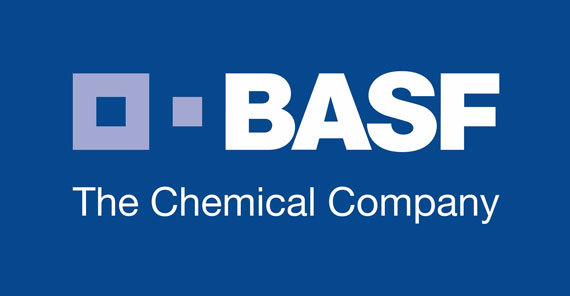More news
- REDA Chemicals at the Middle East Coatings Show: Your sustainable distribution partner
- Evonik boosts its curing agent portfolio
- BASF at UTECH 2024: Ready for the circular economy with sustainable recycling solutions fo...
- Fast & Fluid Management EMEA unveils future paint tech innovations at the Middle Eas...
- 30th edition of the Middle East Coatings Show opens tomorrow marking an important day for ...

Significantly weaker-than-expected industrial production negatively impacted volumes and margin development at BASF.
At around 1.5% according to current estimates, growth in industrial production in the first half of 2019 was much slower than expected.
The downturn in growth in the global automotive industry was particularly strong: Globally, production declined by around 6% in the first half of 2019.
In China, the world’s largest automotive market, the decrease was more than twice as high, at around 13%.
The weak development of the agricultural sector in North America was an additional burden: Due to difficult weather conditions, the planting of key field crops in the region was down from the previous year and far below the historical average.
The decrease in earnings prospects for farmers and the trade disputes led to lower demand for crop protection products.
To date, the conflicts between the USA and its trading partners, particularly China, have not eased – contrary to what was assumed in the BASF Report 2018.
In fact, the G20 summit at the end of June has shown that a rapid détente is not to be expected in the second half of 2019.
Overall, uncertainty remains high.
In this environment, the preliminary figures for the second quarter of 2019 are significantly below current analyst estimates and BASF’s expectations at the beginning of the year.
Sales declined by 4% in the second quarter of 2019 to €15.2bn (second quarter of 2018: €15.8bn).
EBIT before special items for the second quarter of 2019 is expected to be €1.0bn, 47% below the figure for the same quarter of the previous year (second quarter of 2018: €2.0bn).
The decline in EBIT before special items was mainly the result of considerably lower earnings in the Materials, Chemicals and Agricultural Solutions segments, compared with the prior-year quarter.
As expected, significantly lower isocyanates prices led to a considerable yr-on-yr decline in the Materials segment’s EBIT before special items in the second quarter of 2019.
In the Chemicals segment, the decrease was primarily due to the scheduled turnarounds of the steam crackers in Port Arthur, Texas, and Antwerp, Belgium; furthermore, margins for steam cracker products, especially in North America, were considerably lower than BASF forecast.
BASF is systematically implementing the measures announced in connection with its strategy, especially regarding portfolio management and cost reduction.
The ongoing excellence programme is expected to deliver a positive contribution to EBITDA of €2bn annually from the end of 2021 onward.
In total, BASF is planning a reduction of around 6000 positions worldwide by the end of 2021.
Net income is expected to increase to €6.5bn (second quarter of 2018: €1.5bn). This is due to the book gain from the deconsolidation of Wintershall with the closing of the merger of Wintershall and DEA on May 1, 2019. It will be shown in income after taxes from discontinued operations.
Outlook for the full year 2019 lowered
As a consequence of the considerably weaker-than-expected business development in the second quarter of 2019 and the slowdown in global economic growth and industrial production, mainly due to the trade conflicts, BASF now anticipates considerably lower EBIT before special items of up to 30% below the prior‑year level (previous forecast: slight increase in EBIT before special items of 1–10%).
For sales, BASF now expects a slight decline compared with the full year 2018 (previous forecast: slight sales growth of 1–5%).
Return on capital employed (ROCE) for the full year 2019 is now expected to decline considerably compared with the previous year (previous forecast: ROCE slightly, ie 0.1–1.0 precentage points, lower than in 2018).



